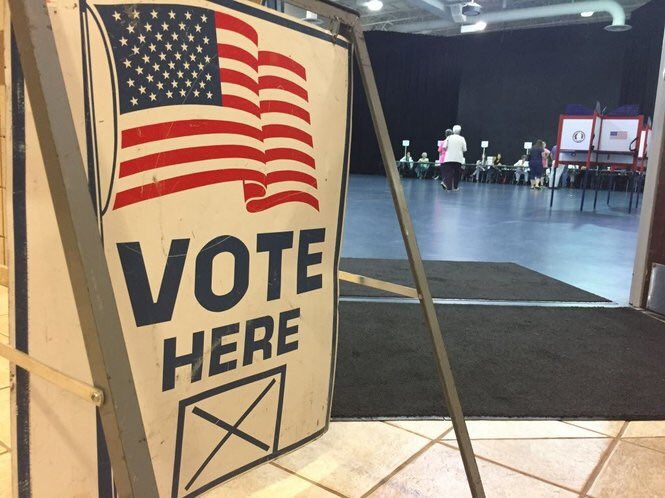Political polarization in the United States is increasingly aggravated. On April 26,
The New York Times highlighted the change in the political stance of the governor of Alabama, from an austere conservative to an enthusiast of far-right ideas. According to the NYT: “Gov. Kay Ivey of Alabama was never a moderate Republican. But in 2018, when she ran for her first full term, she artfully dipped into conservative talking points in a mild manner. Four years later, as she runs for re-election, she’s again airing ads with music suitable for 1990s family sitcoms. The message, however, is far different. In one ad, Ivey claims that “the left teaches kids to hate America.” Later, she boasts that she ended “transgender sports” in Alabama schools. In another ad, she falsely accuses President Biden of “shipping illegal immigrants” into the country, warning that “we’re all going to have to learn Spanish.” Facing pressure from her right, Ivey has shed her image as a traditional salt-of-the-earth Alabama conservative — leading the charge on restrictive abortion laws and protecting Confederate monuments — and transformed into a Trump-era culture warrior.”
The change in Governor Kay Ivey's position comes just as she faces candidates from her own party who are increasingly positioned to the right and that now support the theses of the QAnon conspiracy theory. Considering the current political landscape of the Republican Party, for a candidate to become more competitive, they need to be much more conservative and fierce, as demonstrated by the experience of the openly QAnon first congresswoman, Marjorie Taylor Greene (R-GA), whose radical and raucous noise has inspired many candidates in the 2022 primaries.
Another situation that deserves to be highlighted for its radicalism occurred in the Florida State Legislature, when a law to remove tax benefits from the Disney Group was passed. The numbers reached one billion dollars. The move is a Republican retaliation against The Walt Disney Company for their position against the "Don't Say Gay" Law, which imposes a restriction on what schools can teach their students about gender.
This law severely limits educators' ability to advise students on gender without parents' consent and opens the door for parents to sue schools for violations of vaguely defined rules. Paul Krugman, awarded the Nobel Prize, drew attention to the absurdity of the Republicans' position in this case. According to Krugman for
The New York Times, “the attack on Disney has gone far beyond financial reprisal: Suddenly, Mickey Mouse is part of a vast conspiracy. Florida’s lieutenant governor went on Newsmax to accuse Disney of “indoctrinating” and “sexualizing children” with its “not secret agenda.” If this seems crazy — which it is — it’s also increasingly the Republican norm. I don’t think political reporting has caught up with how thoroughly QAnonized the G.O.P. has become.”
It is essential to point out, however, that American society is positioned more liberally in several fields. In 2019,
The Pew Research Center conducted a series of surveys on controversial topics, such as the liberation of marijuana consumption, same-sex marriage, and religion. According to the institute, two-thirds of American adults now support legalization. In 2010, less than half (41%) did so. A change in the legal landscape has accompanied the shift in public sentiment. Since 2019, 11 states and the District of Columbia have legalized small amounts of marijuana for adult recreational use, and others have legalized it for medical use, but the drug remains illegal under federal law.
Same-sex marriages are supported by most American adults, with 61% in favor of gays and lesbians getting married legally. In 2015, the US Supreme Court issued its landmark decision, Obergefell v. Hodges, which established that same-sex couples have a constitutional right to marry.
From a religious standpoint, it has become more common for Americans to attend church a few times a year or less (54%) than monthly or more (45%). Also, since 2009, the share of Americans who describe their religious identity as atheist, agnostic or “nothing in particular” has grown from 17% to 26%. By contrast, the share of those who describe themselves as Christians dropped from 77% to 65%.
Such profound changes in US public opinion tend to create strong resentment among the more conservative sections of society. Hence arose the opportunity for the far-right to take advantage of the fear to herd populations from more rural states and white-majority suburbs. So, the conspiracy theories become more effective because they tap into the collective subconscious and promise the comfort of an idealized past, as in a Golden Age.
The cultural war waged by the far-right in social media and the dissemination of fake news is cornering sectors of the Democratic Party, especially those in predominantly Republican states, or the so-called “swing states,” such as Arizona, Florida, and Nevada, where a significant portion of the Latino/Hispanic-origin population live. In cultural aspects, Latinos are very conservative in topics such as religion and same-sex marriage.
Democratic Representative Ruben Gallego of Arizona's 7th District criticized colleagues in his party for treating Latinos the same way they treat "white liberals." He made this statement on the “Playbook Deep Dive” podcast on
“Politico” on April 22. Segundo Gallego, “We don’t really talk about the American dream to Latinos; we talk to them like we talk to white liberals. But they’re not white liberals!” Latinos want to be rich, they want to be successful, they want to be secure, they want to have jobs, they want all these things. A bunch of fucking big, big donors [who] are all white liberals end up hiring liberal consultants, [who] end up hiring other very liberal Latino consultants. And they all have this massive fucking feedback loop.”
Despite these positions, deputy Ruben Gallego can be considered from the progressive wing of the Democratic Party, as he defends the party's central theses, such as the legalization of marijuana, expansion of public health assistance, the restriction of the carrying of weapons, and the rights of the LGBTQIA+ community in the military. In the 2020 elections, Gallego received 75% of the votes in his district, which shows his high representation among his community. But, regardless of that, he believes that the mere transposition of the general guidelines that mobilize the youth and the more liberal sectors of the white elite does not help to mobilize the Latino population in general, especially those at the base of the social pyramid or who are still are undocumented.
One of the themes that ignite the “culture war” between Democrats and Republicans is the issue of gender. For Republicans, people's gender classification is binary (male-female), and they don't admit, as large segments of Democrats do, that gender identity depends on each person's orientation and not just on biology. We mention here that Senator Marsha Blackburn (R-TN), during the nomination hearing for Judge Ketanji Brown Jackson, embarrassed the candidate by asking how she defined the condition of a “woman,” to which she replied that she was not a biologist.
Still, in this dispute of narratives between progressives and conservatives, we can include the proper use of language, not only to overcome prejudices implicit in particular words that bring with them racist, misogynistic or prejudiced contents, but also in the inflection of pronouns to find a certain gender neutrality, notably in languages where the definition of gender is defined by the last vowel, in this case, “a” or “o”, like Spanish and Portuguese. Hence, variations arise that include the "x" at the end of words. In the specific case of the Latino/Hispanic community, the solution found by defenders of gender neutrality was to introduce the expression “LATINX” rather than "Latino" or "Latina," whose use is concentrated in specific university sectors, in cultural circles, and more segmented media.
In the February 13 edition of this
Latino Observatory, we mentioned a survey by Bendixen & Amandi International, a leading Democratic-oriented institution specializing in publishing for the Latino community, sought to further investigate perceptions of the terms. Last November, researchers asked 800 people of different age groups (Hispanics/Latinos) which term would come closest to describe their ethnic origin. To the general average of adults surveyed, 2% preferred the term “Latinx”, 68% voted for the term “Hispanic”, while 21% chose “Latino” or “Latina”, regardless whether they were born in the United States or not. It is noted that among those who selected the term “Latino” almost twice as many were born abroad.
Amid the cultural war that polarizes American society, it seems to be challenging to find any compromise between deeply entrenched positions. In this aspect, the concern expressed by deputy Ruben Gallego is based on the assumption that the Latin electorate can be “hooked” by the pro-family speeches and pro-traditional values defended by the republicans. Tradition, even if invented, brings a certain comfort to people who are confused amidst a scenario of disruptive technological, cultural, and economic changes. Hence the sagacity of Donald Trump's “Make America Great Again” speech, which refers to a country with full employment and high wages for ordinary workers, unlike the situation of insecurity and precariousness that marks the current economy.
In this context, in which inflation deeply erodes the income of the lower classes and the war in Ukraine brings uncertainty and insecurity, the more identitary discourse of the progressives of the Democratic Party may have little efficiency in the attempt to mobilize voters for the midterm elections. Both in the United States and Brazil, this type of discourse only reinforces the convictions of those who are already convinced, but cannot reach a wider audience. In this sense, the frustrations with Biden's broken promises are one more element of the equation that points to a crushing defeat for the Democrats in November 2022.
 commons.wikimedia.org
commons.wikimedia.org











